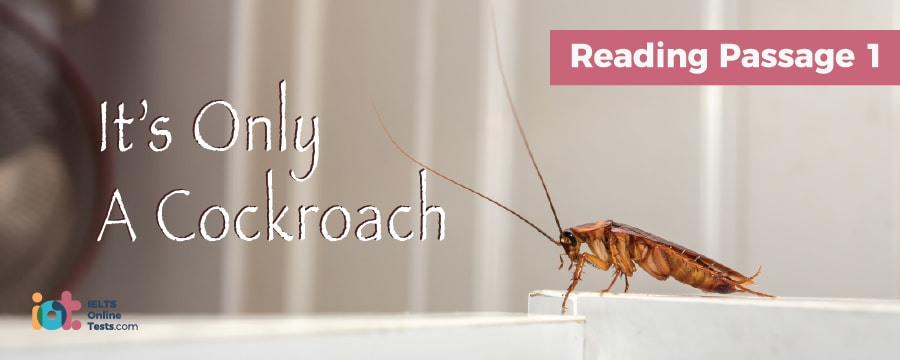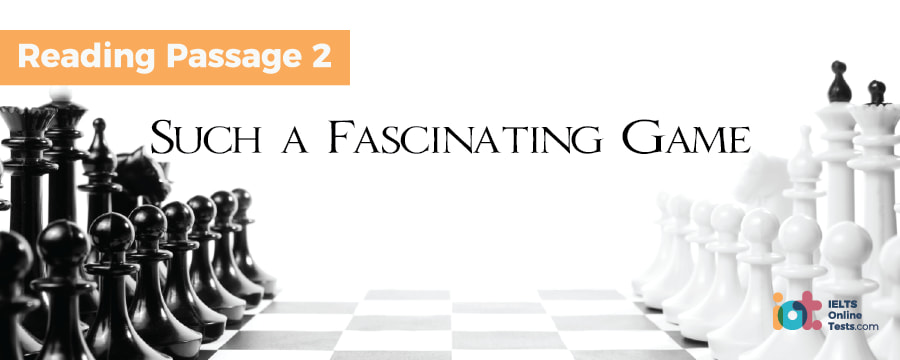
IELTS Mock Test 2021 January
- Đăng ngày: 20 Jan 2021
- Tests taken: 2,371,035
Đáp án
Part 1: Question 1 - 13
- 1 disgusting appearance
- 2 domestic hygiene
- 3 (the) wasp
- 4 flatten (bodies)
- 5 FALSE
- 6 TRUE
- 7 FALSE
- 8 NOT GIVEN
- 9 pheromones
- 10 co-operate
- 11 admiration
- 12 D
- 13 B
- 1 disgusting appearance
- 2 domestic hygiene
- 3 (the) wasp
- 4 flatten (bodies)
- 5 FALSE
- 6 TRUE
- 7 FALSE
- 8 NOT GIVEN
- 9 pheromones
- 10 co-operate
- 11 admiration
- 12 D
- 13 B
Part 2: Question 14 - 26
- 14 TRUE
- 15 NOT GIVEN
- 16 TRUE
- 17 (the) bishop
- 18 (to) accelerate play
- 19 (Garry) Kasparov
- 20 subliminal memory
- 21 theoretical study
- 22 huge population
- 23 faster processing
- 24 intelligence
- 25 B
- 26 C
- 14 TRUE
- 15 NOT GIVEN
- 16 TRUE
- 17 (the) bishop
- 18 (to) accelerate play
- 19 (Garry) Kasparov
- 20 subliminal memory
- 21 theoretical study
- 22 huge population
- 23 faster processing
- 24 intelligence
- 25 B
- 26 C
Part 3: Question 27 - 40
- 27 viii
- 28 vii
- 29 i
- 30 v
- 31 iii
- 32 x
- 33 iv
- 34 spleen and liver
- 35 sufficient numbers
- 36 regulation
- 37 antigens
- 38 FALSE
- 39 TRUE
- 40 NOT GIVEN
- 27 viii
- 28 vii
- 29 i
- 30 v
- 31 iii
- 32 x
- 33 iv
- 34 spleen and liver
- 35 sufficient numbers
- 36 regulation
- 37 antigens
- 38 FALSE
- 39 TRUE
- 40 NOT GIVEN
Leaderboard:
| # | Thành viên | Điểm | Thời gian | |
|---|---|---|---|---|
| Choirisa Pohan |  | 9.0 | 15:12 | |
| none2099 |  | 9.0 | 15:17 | |
| Bảo Phạm Gia |  | 9.0 | 15:18 | |
| 4 | Abdulrahman Jalloh |  | 9.0 | 15:23 |
| 5 | Mohammed niyas Ahamed |  | 9.0 | 15:30 |
| 6 | Pek Hieng |  | 9.0 | 15:32 |
| 7 | parkarbasil18 |  | 9.0 | 15:42 |
| 8 | Nguyễn Gia Bảo |  | 9.0 | 15:44 |
| 9 | Zunnurain Hassan |  | 9.0 | 15:44 |
| 10 | Teecie Huang |  | 9.0 | 15:50 |
Giải thích chi tiết
Questions 1-4
Answer the questions.
Choose NO MORE THAN TWO WORDS from the passage for each answer
What aspect of cockroaches makes the author want them removed from the home?
1
What human aspect do they endanger?
2
Which insect is the best cockroach killer?
3
What can cockroaches do to easily hide?
4
- 1 Answer: disgusting appearance
Keywords in Questions
Similar words in Passage
Q1: What aspect of cockroaches makes the author want them removed from the home?
It’s only a cockroach, but its large size, long antennae, shiny appearance, and spiny legs, all present a particularly disgusting appearance […] This is certainly the over-riding reason I want these creatures totally eradicated from my apartment
The question asks for one specific characteristic of the cockroach that terrifies the author and makes her want to get rid of them. As we can see, in the passage, the cockroach is described with a lot of traits namely ‘’large size, long antennae, shiny appearance, and spiny legs’’ and overall, it is demonstrated as having disgusting appearance. Thus, we can infer that not any single characteristic but its entire body that the writer hates. Moving onto the next paragraph, the writer notes that ‘’this is the over-riding (main) reason’’ why she wishes it to totally eradicate (disappear) from her place. Note that ‘’eradicate’’ means no longer exists which is similar to ‘’move’’ and ‘’this’’ here indicates ‘’disgusting appearance’’. Thus, the answer is disgusting appearance
- 2 Answer: domestic hygiene
Keywords in Questions
Similar words in Passage
Q2: What human aspect do they endanger?
they also pose a distinct threat to domestic hygiene.
The answer can be found in the first sentence of paragraph 2. Note that ‘’they’’ is referred to the cockroaches while the words ‘’endanger’’ in the question is paraphrased to be ‘’pose a threat’’ as they have the same meaning of doing harm to something. According to the passage, cockroaches can possibly threaten ‘’domestic hygiene’’. Thus, the answer is domestic hygiene
- 3 Answer: (the) wasp
Keywords in Questions
Similar words in Passage
Q3: Which insect is the best cockroach killer?
The most precise cockroach killer is, typically, another insect. A specific species of wasp targets these creatures
Note that the question does not ask for general cockroach killer but emphasise on the best or the most helpful and effective one and it must be a kind of insect. From the passage, we acknowledge that wasp, which can paralyse cockroach temporarily, is the most precise killer of cockroach. In paragraph 4, it is said that the most effective or the best cockroach predators are the house centipedes. However, centipades are not insects. Therefore, the only suitable answer to this question is wasp.
- 4 Answer: flatten (bodies)
Keywords in Questions
Similar words in Passage
Q4: What can cockroaches do to easily hide?
cockroaches usually conceal themselves during the day, and with their ability to flatten their bodies, they can disappear into just about any tiny nook, crevice, and cranny
Note the simple word ‘’hide’’ in the question is replaced by an academic word, conceal which suggests the same meaning. It is observed that what facilitates the cockroaches to disappear and hide in tiny (small) spaces lie on their bodies which could be flexibly flatten. As the word limit is NO MORE THAN TWO WORDS , flatten bodies is our answer
Questions 5-8
Do the following statements agree with the information given in Reading Passage One?
Write
| TRUE | if the statement agrees with the information |
| FALSE | if the statement contradicts the information |
| NOT GIVEN | If there is no information on this |
5 The author finds cockroaches more repulsive than centipedes.
6 Cockroaches live longer than many other insects.
7 Cockroaches will fight over food.
8 Cockroaches are often the subject of research.
- 5 Answer: FALSE
Keywords in Questions
Similar words in Passage
Q5: The author finds cockroaches more repulsive than centipedes.
Unfortunately, I would say that centipedes are even more disgusting to have in one’s house
Note that ‘’repulsive’’ is the synonym of ‘’disgusting’’. Even though the writer is suggested that house centipedes have the best ability to eliminate cockroach, she gives up the idea of raising a centipede at home. It is because compared to cockroaches, centipedes look even more strange/disgusting/repulsive. Since question 5 states the opposite side, the answer is False.
- 6 Answer: TRUE
Keywords in Questions
Similar words in Passage
Q6: Cockroaches live longer than many other insects.
These insects are just about the hardiest, on the planet […] with the insect’s relatively long lifespan (about a year)
One fact upsets the people who hate cockroaches is that they are capable of enduring harsh conditions. Consequently, they are illustrated to possess a lifespan which lasts for a relatively long time. Note that ‘’lifespan’’ means how long a species can live which matches with the question’s focus. As we can see, although the writer doesn’t directly compare cockroaches with other insects, we can still infer that their lifetime is longer than that other insects. Thus, the answer is True.
- 7 Answer: FALSE
Keywords in Questions
Similar words in Passage
Q7: Cockroaches will fight over food.
[…] signal other cockroaches about sources of food and water Research has shown that cockroaches make group-based decisions, and tend to co-operate
From research, the writer comments that the cockroaches’ one habit is to make decision with the contribution of the whole group. One example is that when dealing with the affair of searching for food and water, instead of fighting against each other to gain the food, they have the tendency to co-operate by messaging others with chemicals or airborne pheromones. From that we can see statement in Q7 is False.
- 8 Answer: NOT GIVEN
Keywords in Questions
Similar words in Passage
Q8: Cockroaches are often the subject of research.
Research has shown that cockroaches make group-based decisions, and tend to co-operate
In the passage, the writer includes several researches about cockroaches to support her idea. Nonetheless, it doesn’t mean that researches frequently focus on cockroach. Hence, Not given is the answer.
Questions 9-11
Complete the summary of the second half of the passage.
Choose ONE WORD from the passage for each answer.
Cockroaches use 9 in the air to communicate, and show a willingness to 10 , yet the author struggles to feel 11 for these insects. |
- 9 Answer: pheromones
Keywords in Questions
Similar words in Passage
Q9: Cockroaches use, in the air to communicate
They leave chemical messages in their droppings, as well as emit airborne pheromones to signal other cockroaches about sources of food and water, and alert them to their own presence.
As we have pointed out in Q7, once the source of food or water is detected, the cockroach will not keep it for itself but send signals to muster other cockroaches. In addition to the chemicals released, they also communicate by the emissions of pheromones in the air. Hence, the answer is pheromones
- 10 Answer: co-operate
Keywords in Questions
Similar words in Passage
Q10: Cockroaches, show a willingness to
Research has shown that cockroaches make group-based decisions, and tend to co-operate
As the conjunction ‘’and’’ is used between Q9 and Q10, we anticipate that the answer for Q10 is related to the answer in Q9. Indeed, when mentioning about food searching, the writer notes that the cockroaches are less likely to be violent with each other. By contrast, they volunteer or have willingness to co-operate which means to share foods with others. Hence, the answer is co-operate.
- 11 Answer: admiration
Keywords in Questions
Similar words in Passage
Q11: yet the author struggles to feel, for these insects
Should I therefore feel any admiration? It is hard
Having observed that cockroaches set some good examples of collaboration, the writer, however, fails or struggles with feeling admire to this species. It is challenging/hard to think so, as justified by her, because their descriptions are typically dirty and disgusting. Hence, the answer is admiration.
Questions 12-13
Choose the correct letter, A, B, C, or D.
Gregor
- A
- B
- C
- D
Keywords in Questions | Similar words in Passage |
Q12: Gregor A. becomes a cockroach. B. is a famous character. C. despises his friends. D. needs companionship. | In the insect’s most famous literary appearance - Franz Kafka’s ‘The Metamorphosis’ - a man, Gregor, is transformed overnight into a monstrous insect, probably a cockroach (although the story never quite makes that clear). Gregor’s transformation results in very predictable responses from his family and friends, who can never accept him again. He eventually dies, outcast and lonely, despised and mistreated - a potent symbol of alienation and rejection. |
Consider each option:
Thus, A, B, C are incorrect. D is the answer. What we can observe from his story is his tragedy in which his insect-like appearance leads to his isolation as being rejected. It means he has lack of love and companionship. Hence, D is correct. | |
The author wants to
- A
- B
- C
- D
Keywords in Questions | Similar words in Passage |
Q13: The author wants to A. catch the cockroach. B. kill the cockroach. C. touch the cockroach. D. fly like a cockroach. | If I try to grab it, it will dart away, and I doubt whether I’ll be able to catch it before it disappears into the numerous cracks and crevices of my old apartment. So, I carefully remove my slipper, determined to squash the insect |
At first the author considers to catch the cockroach but she changes her minds as she might fail to catch this fast-running pest. Therefore, she manages to squash/kill it with her slipper. Thus, B is the answer | |
Reading Passage 1
You should spend about 20 minutes on Questions 1-13, which are based on Reading Passage One.

It’s Only a Cockroach
I turn on the light in my kitchen that night, and then I see it. I draw back, and my first instinct is to scream. I control myself with difficulty, but find myself shuddering, unable to deal with the creature before me. It’s only a cockroach, but its large size, long antennae, shiny appearance, and spiny legs, all present a particularly disgusting appearance. And this is not just to me, but to everyone it seems, even to the point of phobic responses.
This is certainly the over-riding reason I want these creatures totally eradicated from my apartment, but with their offensive odour, passive transportation of microbes, and trails of droppings, they also pose a distinct threat to domestic hygiene. Clearly, cohabitation is not possible. So, I do all I can to keep these pests away. Food is stored in sealed containers, garbage cans have tight lids, my kitchen is kept spotlessly clean, and my apartment swept and mopped nightly. I have also sealed up possible entry points, but still, these loathsome things find their way inside. I need a way to kill them.
The most precise cockroach killer is, typically, another insect. A specific species of wasp targets these creatures. With a quick accurate swoop, it bites the cockroach at the main nerve centre of its body, which results in a temporary paralysis. This is very necessary, as we all know just how fast cockroaches can run. The wasp has only a few minutes to prepare its next sting, in the exact area of the brain which controls the cockroaches’ instinct to escape. After the paralysis departs, the cockroach is subdued and docile, and doomed. The wasp bites off the antennae to further discourage flight, then drags its victim away.
Faced with such predation, cockroaches usually conceal themselves during the day, and with their ability to flatten their bodies, they can disappear into just about any tiny nook, crevice, and cranny. There, they wait patiently for darkness before emerging to search for food, and will usually run away when exposed to light. Given this, I am told that the slim and agile house centipede is probably the most effective cockroach predator, able to track down and root out the most carefully hidden prey. Unfortunately, I would say that centipedes are even more disgusting to have in one’s house, if that’s possible. I just can’t win this game.
Can anyone win? These insects are just about the hardiest, on the planet. Some can wait for up to three months before meals, some can survive on the barest hint of nutrition (such as the glue on the back of postage stamps), and some can live without air for over half an hour. They do not, however, handle cold weather well, preferring the warm conditions and security found within buildings. Hidden there, the female lays egg capsules containing around 40 eggs, and with the insect’s relatively long lifespan (about a year), some 300 to 400 offspring can ultimately be produced. The result: once these insects have infested a building, they are very difficult to eradicate.
Cockroaches do, however, have some subtleties. They leave chemical messages in their droppings, as well as emit airborne pheromones to signal other cockroaches about sources of food and water, and alert them to their own presence. The latter is more important, for these insects are actually somewhat gregarious. Research has shown that cockroaches make group-based decisions, and tend to co-operate. One study placed a large number of cockroaches in a dish with three small shelters, and the insects divided themselves equally between two of them, leaving the third one empty. When these shelters were exchanged for two very large ones, all the cockroaches arranged themselves in just one. These creatures, it seems, prefer the company of others, and a rather fair al location of resources.
Should I therefore feel any admiration? It is hard - in fact, in Western culture, cockroaches are almost universally depicted as repulsive and dirty pests. In the insect’s most famous literary appearance - Franz Kafka’s ‘The Metamorphosis’ - a man, Gregor, is transformed overnight into a monstrous insect, probably a cockroach (although the story never quite makes that clear). Gregor’s transformation results in very predictable responses from his family and friends, who can never accept him again. He eventually dies, outcast and lonely, despised and mistreated - a potent symbol of alienation and rejection. Yet in the Pixar animated feature ‘Wall-E’, a cockroach provides essential companionship to a lone robot living on a planet scorched by a nuclear holocaust.
Whatever the case, I am faced with a big problem: a large ugly cockroach crawling slowly across my sink, antennae waving as it explores around. If I try to grab it, it will dart away, and I doubt whether I’ll be able to catch it before it disappears into the numerous cracks and crevices of my old apartment. So, I carefully remove my slipper, determined to squash the insect, but then almost scream again as it lifts on its legs, raises membranous wings, and with a loud buzzing noise, flies away. Oh, just what I need they can fly, too.






